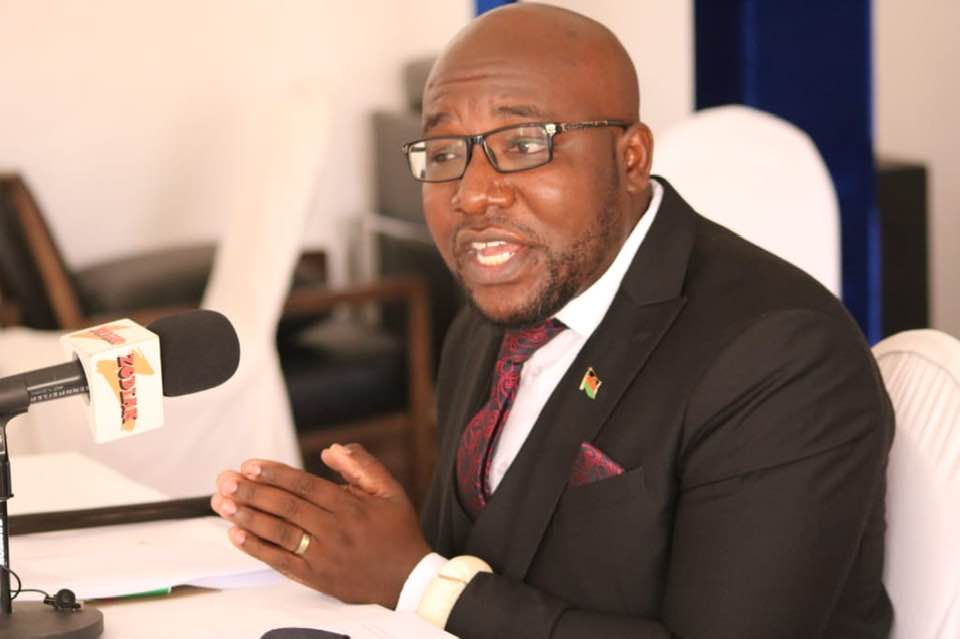Malawi Land Bill stirs fear
 Traditional leaders in Malawi will no longer have 100 percent powers over land within their jurisdictions should the Customary Land Bill scheduled for debate during the current meeting of Malawi Parliament become law.
Traditional leaders in Malawi will no longer have 100 percent powers over land within their jurisdictions should the Customary Land Bill scheduled for debate during the current meeting of Malawi Parliament become law.
The bill has angered some traditional authorities (T/As)—the custodians of customary land since time immemorial—who have described the bill as “absurd” and an attempt to rid the chiefs of the most important symbol of their power without consulting them.
According to drafters, the intended law will largely help curb corruption that they say is rampant among chiefs who currently have overall powers on issues of customary land distribution.
The Customary Land Bill (2012) seeks to repeal the Customary Land (Development Act) chapter 59:01 and replace it with new legislation on the management and regulation of customary land as advocated by the National Land Policy.
“The bill further provides for the creation of committees and tribunals which will be empowered to carry out the function of land allocation, adjudication and management, and settlement of customary land disputes,” reads a memorandum in the introduction of the bill.
The bill, which is among a number of land-related proposed legislation that have since been referred to the Legal Affairs Committee of Parliament, is part of the recommendations of the Law Commission on the review of land-related laws.
Chiefs oppose proposals
But chiefs have scoffed at the idea of having committees looking after land matters in Malawi, saying that will effectively reduce their authority over their jurisdictions. They also wondered how government would proceed to table such an important bill without their input.
In an interview, T/A Kachindamoto of Dedza said she was not consulted and fumed at what she said was an attempt to make chiefs irrelevant.
She said: “This will definitely mean we don’t need chiefs anymore because when we say Chalo we mean the land. How will people call us Chalo when we have no powers over land?”
This concern was echoed by chiefs Lukwa of Kasungu, Kabunduli of Nkhata Bay and Mlilima of Chikhwawa who said there is need for more consultations with chiefs on the law.
Said Kabunduli: “Customary land comes from customs. Customs are what make up chiefs. We are talking of culture and traditions here. Does customary consist of committees?
“The problem is that people making these laws don’t come from royal families themselves. We should go back to Chief’s Council. Why do they avoid this issue [of the Chief’s Council]?”
Lukwa feared that the purported committees may end up being composed of people who do not necessarily come from the areas where they currently live.
“In villages, we keep people who came just for settlement, others just came to marry and per tradition, you don’t give authority over land to in-laws,” he said.
All the chiefs wondered how government intends to address traditional facts such as that “land belongs to families”.
“Let that be done in towns not in the village. Chiefs, government or anybody else can’t take charge of somebody’s land when families in these villages know which land belongs to them,” said Lukwa.
Land management area basically covers the whole land under a T/A.
The bill states that the land committee shall consist of group village heads (GVHs) who shall be the chairperson and “six other persons recognised and respected by the community, at least three of which shall be women who shall be elected by the community.”
But in an interview on Monday, Attorney General Anthony Kamanga said chiefs should not be worried because they will still be consulted on any decisions to do with land.
He suggested that “if chiefs have problems, let them consult Ministry of Lands.”
“They can also go through their members of Parliament,” he said.
However, chairperson of the Legal Affairs Committee of Parliament Kezzie Msukwa thinks the law will not affect powers of chiefs in any way.
“It is not true that chiefs have been relieved of powers over land, but that there shall be committees appointed among the communities where GVH shall chair,” he said.
Curbing corruption among chiefs
An officer who participated in the drafting of the law, but asked not to be named, said the law seeks to curb corruption among chiefs over land matters.
“These chiefs have not been transparent on a number of occasions on matters of land. If we are not careful, one day they will sell this country off,” said the officer.
Minister of Lands Henry Phoya refused to comment on the corruption issues specifically.
“What I know is that these committees will act as a mode of communication to the larger community, thereby making the processes more transparent,” he said.
Phoya said chiefs will still make decisions, “but the difference is that the larger community will now have to know what exactly is happening to their land.”
He rejected assertions that chiefs were not consulted, saying a special law commission had some high ranking chiefs as members.
But a Law Commission report dated April 9 2010 shows that only one T/A, Senior Chief Kanyenda of Nkhotakota, signed off as part of the 19-member special commission on the review of land-related laws.
We could not interview Senior Chief Kanyenda who appears in the report on position nine due to his ill health.
T/A Kabunduli and T/A Lukwa laughed off the idea that the law will curb corruption among chiefs.
“Look, land belongs to people. So what corruption are you talking about?” asked Kabunduli.
According to the Anti-Corruption Bureau (ACB) governance and corruption survey, chiefs in Malawi are the most corrupt sector only second from the police.
Conflicting laws
But The Nation’s review of the land related bills and other bills earmarked for enactment reveal contradictions and conflicts among the documents.
For instance, the Forestry (Amendment) Bill, which seeks to amend the Forestry Act to bring it in harmony with the new land management scheme, conflicts with the Customary Land Bill.
Section 26 provides that a minister responsible for forestry matters should consult the minister responsible for physical planning and traditional authorities whenever they plan to declare a piece of land as a forest reserve or protected area.
While the proposal aims to limit a minister’s discretion, it runs counter to the new customary land management scheme which says committees are in charge of customary land management.
Further, Section 30 provides for the demarcation of village forest areas and states that this shall be done by the Customary Land Committees and yet Section 26 demands that the minister should consult with T/As.
The Land Acquisition Amendment Bill in Section 3 under acquisition provides powers to ministers, district commissioners and chiefs to acquire land for public utility.
One MP said although this would in a way be regarded as part of decentralisation of land management, it is in conflict with the dictates of the proposed customary land law, which transfers management of customary land to Customary Land Committees.
A proposed amendment to the Local Government Act section 15, seeks to limit the functions which a council can delegate to committees or sub-committees to exclude power to acquire and dispose of land to ensure accountability.





